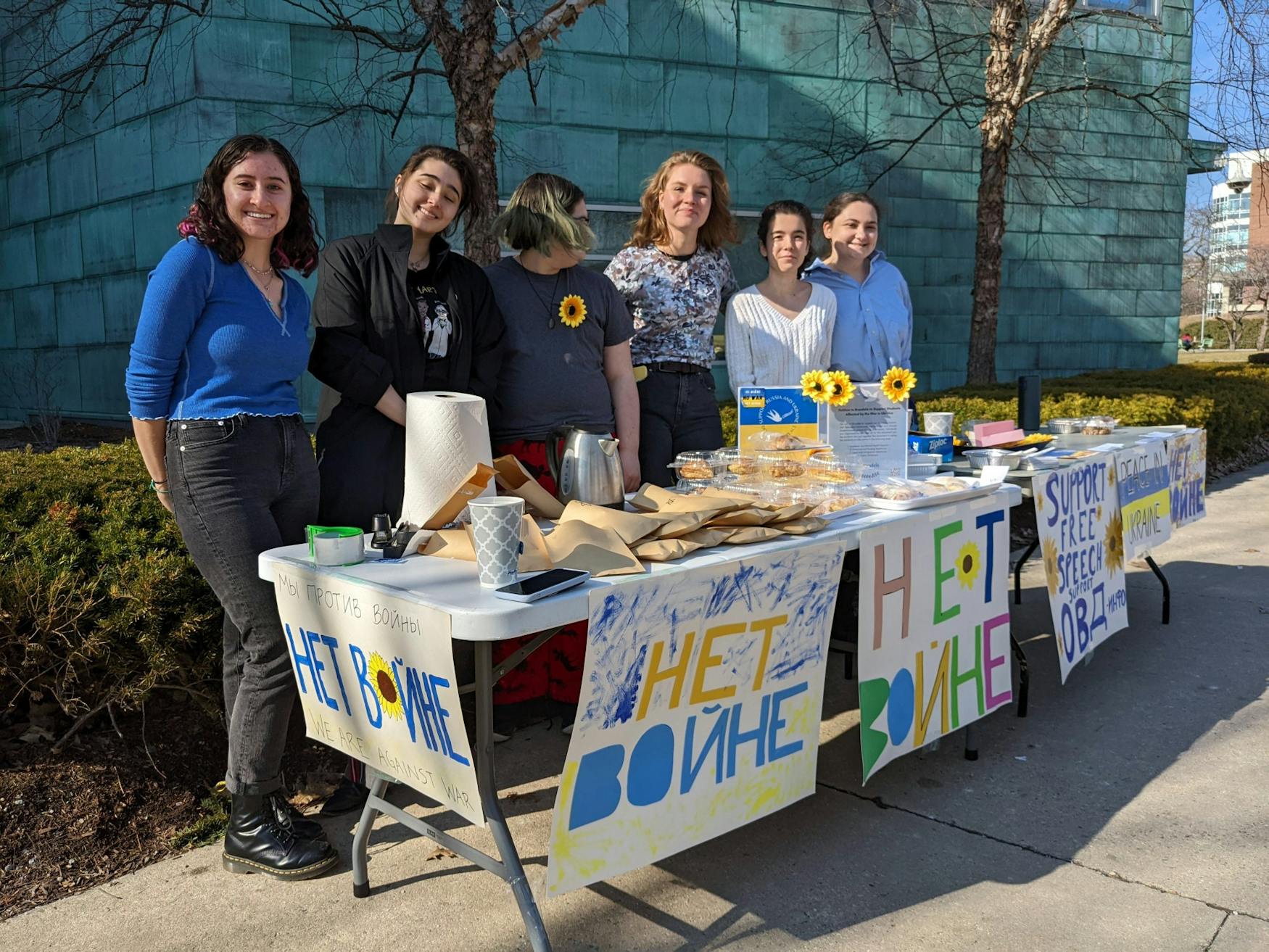Students participate in ‘Unity Week Against the War’
The events were hosted by the Russian Studies department and the Russian Club.
The Russian Studies Department, their Undergraduate Departmental Representatives, and the Russian Club had originally planned a Russian culture week, which was then transformed into “Unity Week Against the War” in light of Russia’s invasion of Ukraine. According to the Russian Studies website, from Tuesday, March 8 to Saturday, March 12, “Unity Week” consisted of events geared toward supporting Ukrainians and Russians, educating people on the war and the massive humanitarian crisis, and encouraging people to become involved. They also circulated a petition during these events, calling on the University to support students affected by the war in Ukraine by providing academic and mental health support, financial and housing assistance, and legal and immigration assistance. They also asked Brandeis to demonstrate their commitment to these actions by making a public statement. Aeryn Rowe ’25 and Berta Muza ’25 co-wrote the petition and largely based it on a Harvard University student’s petition.
On Tuesday, “Unity Week Against the War” hosted a celebration of International Women’s Day and held a fundraiser for Ukrainian refugees in the Shapiro Campus Center atrium. Later that night in Ridgewood Commons, they taught the Russian alphabet for anti-war protests. A Ukrainian alumnus, Vladislav Shapiro M.A. ’93, attended the Russian alphabet event. He assisted with teaching the attendees more about the Ukrainian alphabet and translating common Russian phrases into Ukrainian. The event also provided the opportunity for attendees to make paper sunflowers as a symbol of solidarity with Ukraine.
On March 9, two events were held for “Unity Week Against the War.” The first was about the novel “War and Peace” by Russian author Leo Tolstoy. The second event, “Cheburashka Against the War,” was a crafts night. On March 10, there was a screening of the documentary “Winter on Fire: Ukraine’s Fight for Freedom,” which explained the Ukrainian Maidan Revolution. After the documentary, there was a Q&A session with Profs. Steven Wilson (POL) and Irina Dubinina (GRALL). According to Wilson, it is essential to “understand the history and context to understand any conflict,” he said. “And in particular, seeing the events of 2013 [and] 2014 are just completely informative of what’s going on right now.”
One of the main themes that people brought up in the Q&A was disinformation and how to combat it. Wilson suggested that people should systematically vet their sources, examine what sources news outlets use, and reverse Google image search photos to see if they were taken out of context.
Wilson also discussed that finding accurate information is difficult since “there are no good answers because knowing takes time … I saw a military strategist who’s been writing about Ukraine say that ‘information is plentiful, quick and easy. There is always more information because it’s fast. Knowledge is slow and takes time.’”
After the Q&A, the Justice asked Dubinina about her reaction to the documentary. She talked about her belief “in the power of people. When people get together and there is something in the air that glues them, the idea that they are willing to fight for, they can overcome anything.” She believes that a key takeaway from these events is that people “should educate themselves and go to the events and read reliable sources to find out what’s happening in Ukraine and Russia. I have met some Americans who [ask] me, ‘Why can’t Russians overthrow Putin’s regime?’ and I want people to go and see what happens to those who dare go and protest. It takes a lot of courage.” Shapiro, who also came to watch the documentary, stated that knowledge, communication, and cultural exchange during this time are essential, and he recommends that Brandeis and other universities begin a Ukrainian cultural program.
On March 11, “Unity Week Against the War” held a fundraiser where various homemade baked goods, pins, stickers, and sunflower hair clips were sold to raise money for three charities: OVD-Info, Razom, and World Central Kitchen. OVD-Info is an “independent media project on human rights and political persecutions in Russia” and provides legal assistance to Russians whose rights to assembly and free speech have been violated, according to their website. Razom creates projects dedicated to preserving democracy in Ukraine, and World Central Kitchen cooks meals for Ukrainian refugees, per their websites.
The last event of the week-long programming was a Ukrainian/Russian/Jewish cooking event where attendees learned to make Borsch.



Please note All comments are eligible for publication in The Justice.